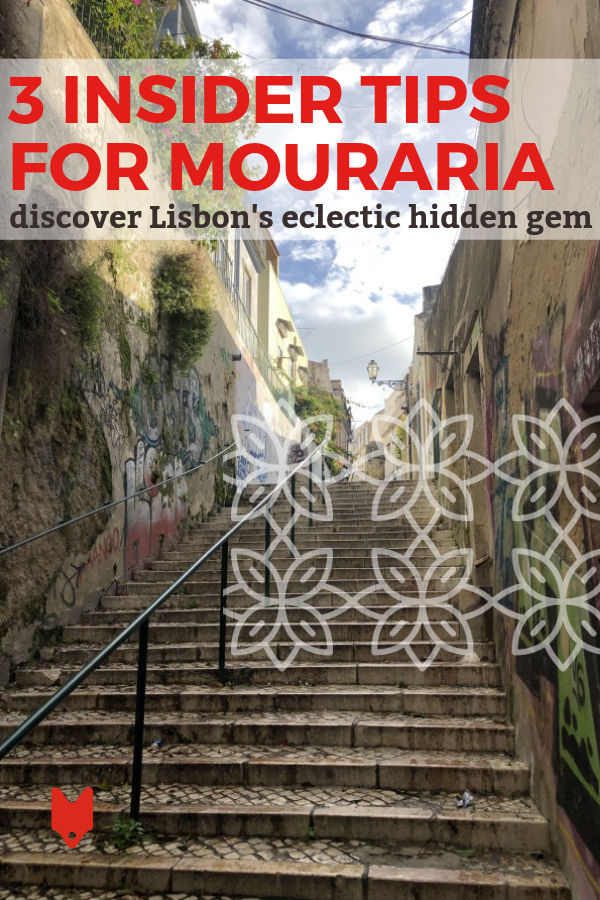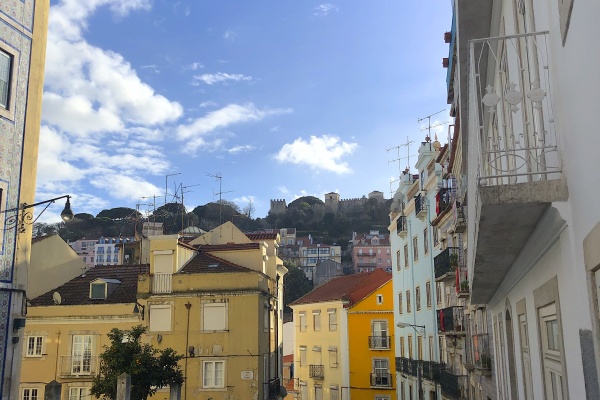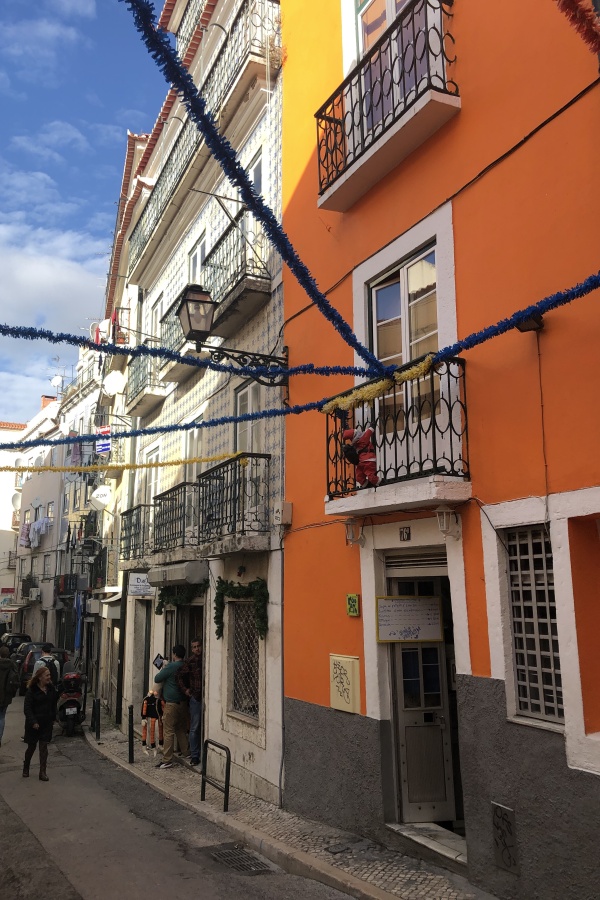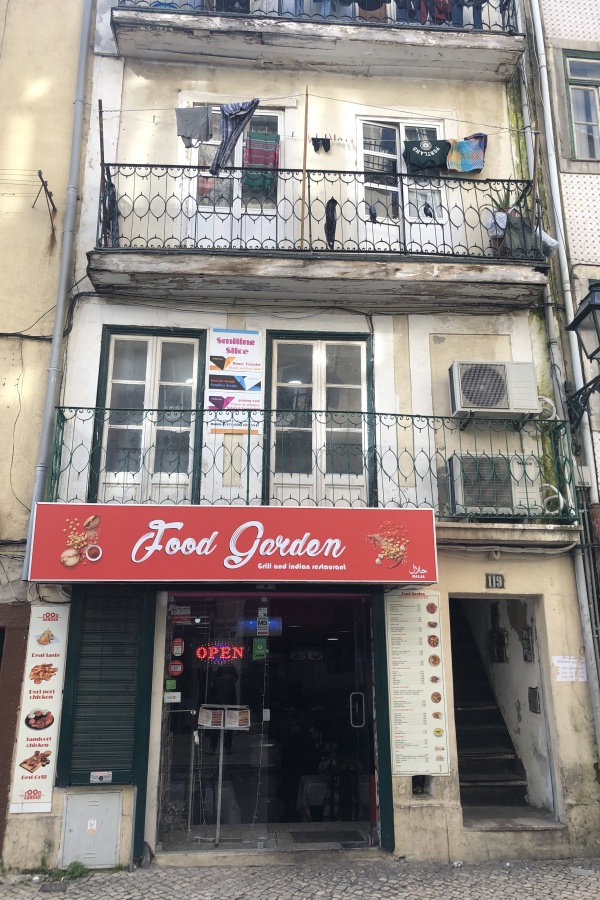Mouraria, the birthplace of fado and the home of the most culturally diverse community in Lisbon is still off most tourists’ maps. They’re missing out!
Mouraria is a tough neighborhood to pinpoint on a map but ask the locals who live there, and they have no trouble explaining to you that the oddly shaped neighborhood is somehow wedged under the Graça and Castelo hills, a couple of side streets to the right of Baixa.
Mouraria is as diverse in stories as it is in its residents. This is the birthplace of fado, of which you see clear references at Rua do Capelão. But this is also the home of generations of immigrants from China, Vietnam, India, Bangladesh, Nepal. For now, gentrification still seems to be at bay in the more central streets. It’s where the authenticity of the community still stands.

Photo credit: Sandra Henriques Gajjar; Text Overlay: Devour Lisbon Food Tours
Mouraria is for the Senses
Look for hidden corners and don’t be afraid to climb up or down any steep stairs you come across to see where it leads you. Unlike in Alfama, it will hardly have you barging into someone’s private courtyard. It might take you to the unattractive back of an apartment building or it might show you a different angle of the Castelo de São Jorge on top of the hill. Most people don’t know about this, but Mouraria’s location is perfect to find those hidden corners of Lisbon.
The smells coming out of different restaurants mixing instead of clashing in what feels like a culinary trip through the world. But, in fact, you haven’t left the same street. It’s so simple and yet it sums up what we mean by cultural diversity in Mouraria. What can be better than tasting different cuisines through dishes with a homemade feel without going too far from one restaurant to the next?
Hearing will probably be your most alert sense when you reach the heart of Mouraria. The immigrant communities talking in their native tongues and switching to Portuguese when a customer or a Portuguese neighbor approaches. Switch to the more touristy streets and fado music, live or recorded, takes over.

Everyday Life in the Mouraria Neighborhood
When local authenticity becomes picturesque for tourists, the balance for local communities may be at risk. In the heart of Mouraria, away from tour guides’ routes and must-see lists, small businesses still find contentment in catering to their neighbors. It’s not unusual that they buy goods from one another, either.
Seen from the top of Miradouro Senhora do Monte, Mouraria looks like a conglomerate of buildings and back alleys without order or plan. Most tourists won’t venture down the stairs next to this viewpoint that leads right into what is still the “real” Mouraria, probably convinced there’s nothing there worth seeing.
Apart from the long lines for Lisbon tram 28 near the Martim Moniz square and some spots linked to the history of Fado, Mouraria doesn’t seem to appeal to tourists at all. Once in a while, a solo rogue traveler following their smartphone map app might find themselves on a shortcut from Martim Moniz to Intendente that turned out to be the best detour of their trip.
Life in Mouraria is still neighborhood-like. Of all the things you come to Lisbon to see, this is the most rewarding (and “un-instagrammable”) of all.

Eating and Shopping in Mouraria
Ask anyone with a flair for cooking where to buy spices in Lisbon and they’ll most likely point you in the direction of Popat Store on the -1 floor of Centro Comercial Martim Moniz. All is good: the quality, the diversity, the price and the pack sizes (compared to those you’d find in a chain supermarket).
For hardware stores, which will have anything you could possibly need to find, exit Centro Comercial Martim Moniz and take a right to R. Cavaleiros. Just hop inside any of the stores covered in an overabundance of utensils from top to bottom and ask. Need a specific cooking utensil that sounds foreign to most chain stores? There’s a chance you’ll find it here.
When it comes to restaurants in Mouraria, you can go according to your food craving of the day. Is it Portuguese cozido à Portuguesa? Nepali momo? Vietnamese Pho? Indian chicken biryani? Just follow along R. do Benformoso, from Martim Moniz to Intendente, to find a variety of family-owned restaurants catering to the neighborhood and curious tourists. While some of them have no problem in marketing themselves through bright colored signs, in others you’ll have to look twice to make sure your nose didn’t deceive you and it really is a restaurant.
